Absolutely the best attorney for getting your VA benefits. After 7 years of denial, I found Brendan Garcia of VetLaw, He reviewed my case, set up a plan , scheduled my video hearing in front of a Veteran law judge, flew out to Phoenix to be there with me during the hearing. Hired a doctor to help draft a report to help my case. When all the smoked cleared, I’m now collecting max disability monthly, back pay beyond my wildest dreams. Brendan Garcia never stopped. He is an expert in Veterans law. Best decision of my life was to have him on my side. Bar none, Brendan is a terrific VA benefits attorney!
Vet Law represents claimants before the Court of Appeals for Veterans Claims. This Court is not part of the Department of Veterans Affairs. Rather, the Court of Appeals for Veterans Claims is a federal court that hears a veteran’s appeal of the Board of Veterans’ Appeals decision.
The Board’s decision represents the VA’s final action in the claim. However, the CAVC court has the jurisdiction to review—and, if warranted—vacate or reverse the VA’s decision.
Read More about Understanding BVA and CAVC ClaimsBelow, you’ll find case summaries highlighting our strategies and outcomes in cases before the CAVC court.
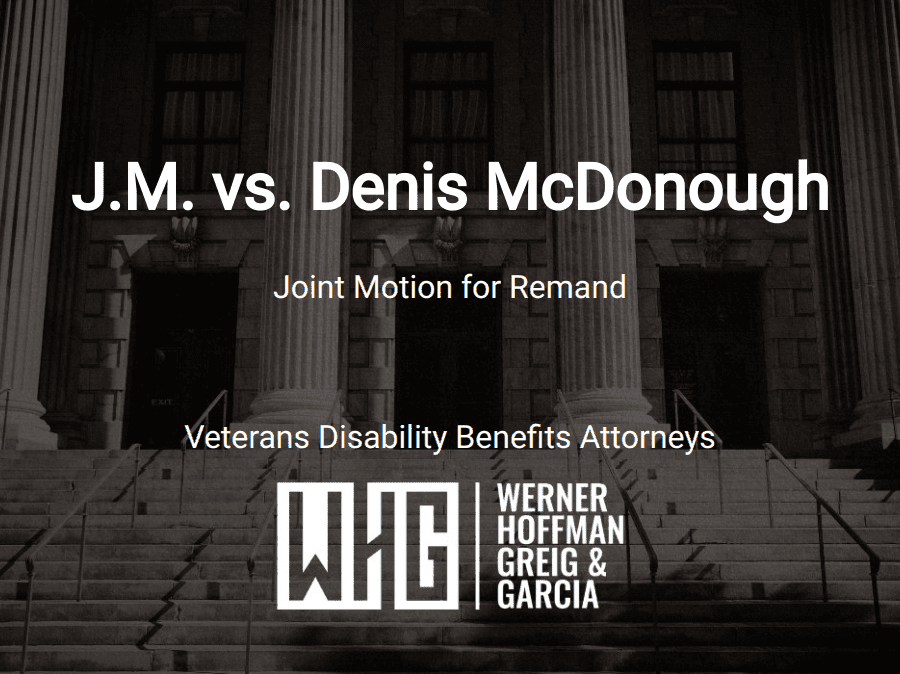
J.M. vs. Denis McDonough
August 30, 2024
In a recent win, the Court of Appeals for Veterans Claims remanded our client’s case involving his Parkinson’s disease claim. The Board of Veterans’ Appeals denied his claim without addressing key issues raised in her Notice of Disagreement. The Board must clearly explain its decisions and address all relevant issues presented in the record. However, […]
Read More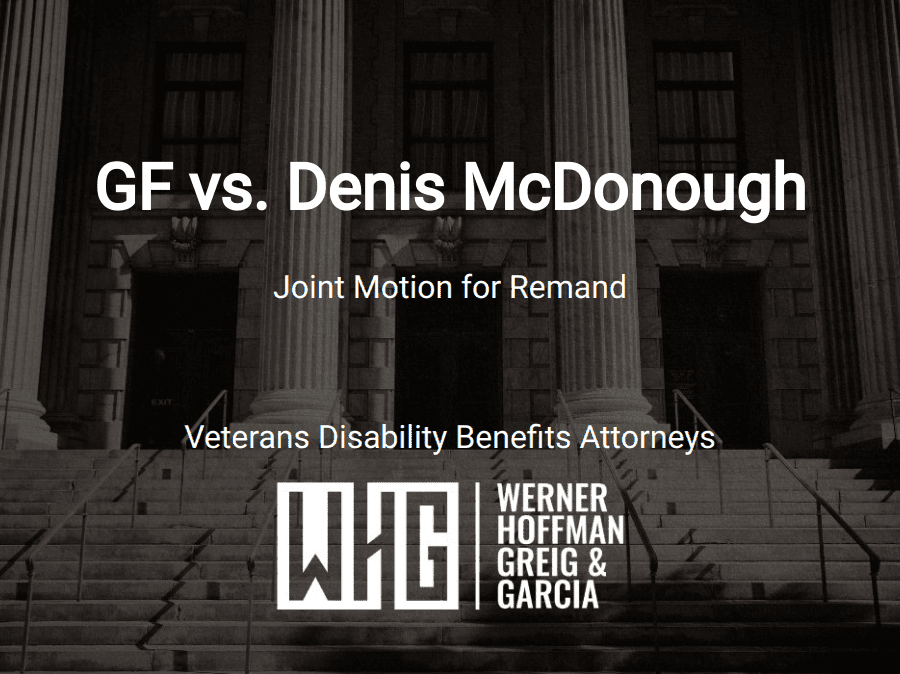
GF vs. Denis McDonough
August 28, 2024
Our firm recently secured a favorable outcome for our client in a veterans’ disability case involving an acquired psychiatric disorder. The U.S. Court of Appeals for Veterans Claims agreed to vacate the Board’s denial of our client’s claim for service connection for an unspecified mood disorder. The Court remanded the case back to the Board […]
Read More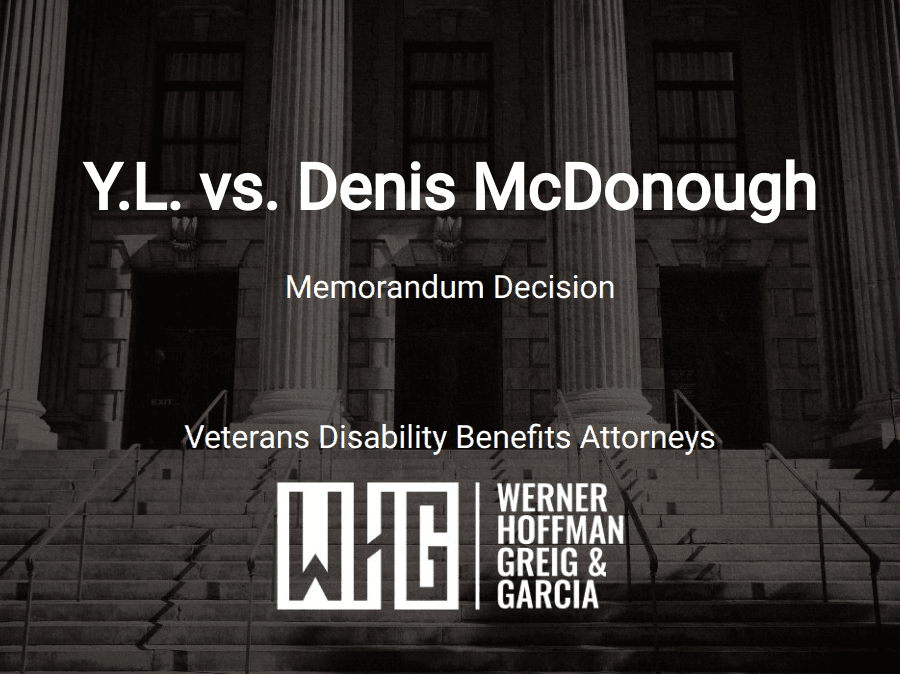
Y.L. vs. Denis McDonough
August 23, 2024
Our client, a U.S. Army veteran, recently won a significant appeal before the Court of Appeals for Veterans Claims. The Court vacated a Board of Veterans’ Appeals decision that denied his claim for service connection for an acquired psychiatric disorder, including PTSD and major depressive disorder. The veteran attributed his condition to a traumatic incident […]
Read More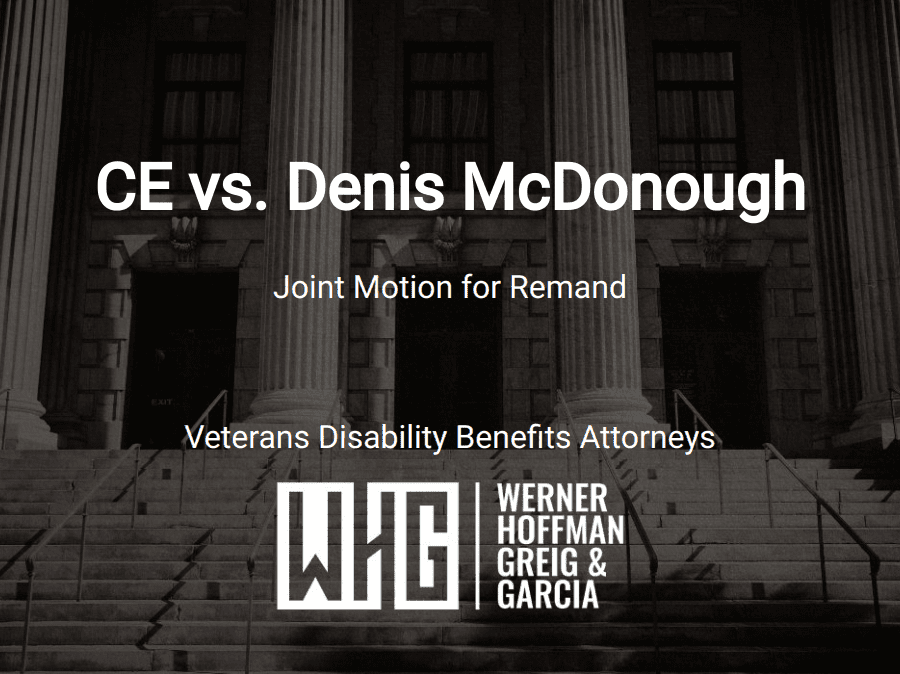
CE vs. Denis McDonough
August 21, 2024
The U.S. Court of Appeals for Veterans Claims vacated a Board of Veterans’ Appeals decision that denied our client service connection for migraine headaches. The Court remanded the case, demanding a closer look at the facts. Why the remand? The Board failed to explain why they didn’t believe our client’s testimony. He testified that he […]
Read More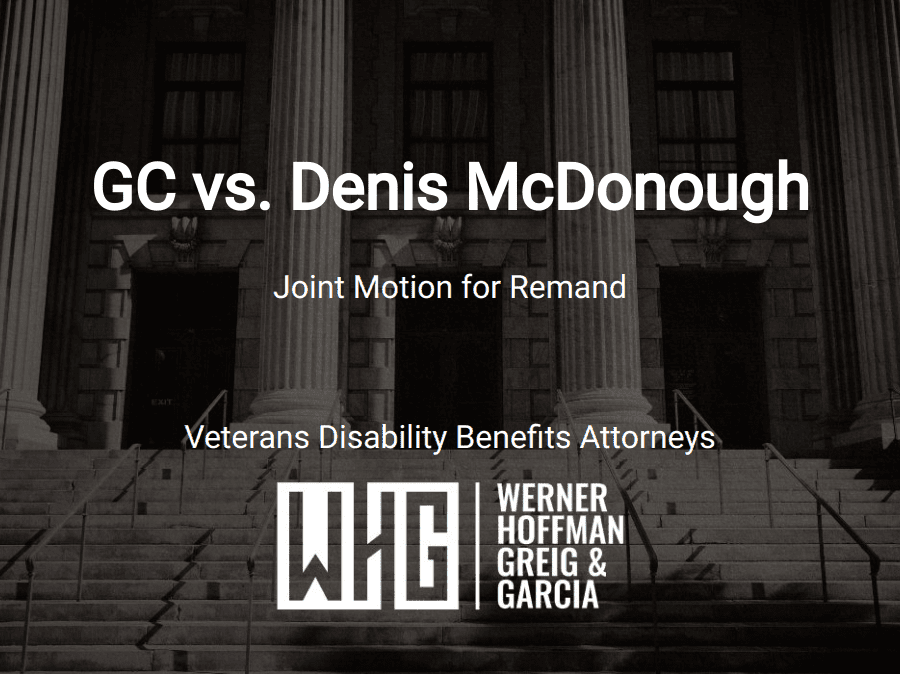
GC vs. Denis McDonough
August 20, 2024
Our CAVC team successfully secured a remand for a veteran challenging the Board of Veterans’ Appeals’ October 24, 2023, decision regarding knee instability ratings. The Board denied a separate disability rating for right knee instability prior to February 1, 2021, and a rating exceeding 10 percent for left knee instability before February 7, 2021. The […]
Read More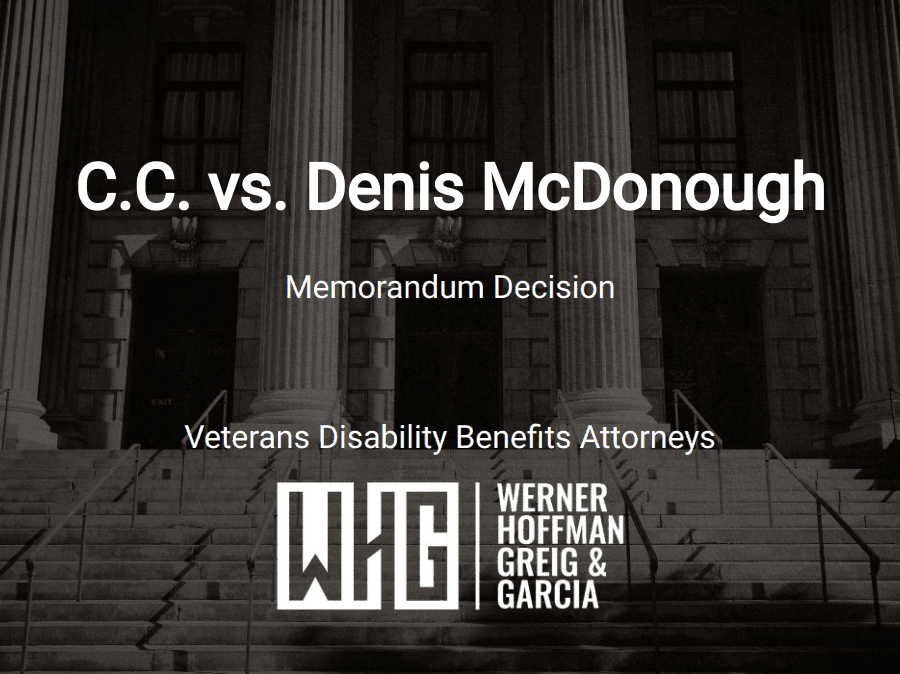
C.C. vs. Denis McDonough
August 14, 2024
WHG recently achieved a significant win for our client at the Court of Appeals for Veterans Claims. The Court vacated a Board of Veterans’ Appeals decision, which denied our client’s claim for a higher disability rating for his service-connected bipolar disorder. The Court agreed with our position that the Board failed to consider key evidence […]
Read MoreQuestions about CAVC
What is the Court of Appeals for Veterans Claims?
The Court, commonly referred to by the acronym CAVC, was established by Congress in 1988 to review VA’s decisions on veterans’ disability claims. Claimants can appeal decisions by the Board of Veterans’ Appeals to the Court to correct any errors in the Board’s decision
How long do I have to file an appeal?
Claimants have 120 days from the date of the Board of Veterans’ Appeals decision to notice an appeal to the Court.
What does it cost?
The exact worth of a personal injury claim can vary based on a number of factors. Some key factors include the extent of the injuries, the costs involved, and the liability of the involved parties. Ultimately, the potential compensation is unique to your situation. Speak with our team to understand the particulars
What options do I have after receiving a decision from the Board of Veterans’ Appeals?
For claims still in the legacy system, an appeal to CAVC is a claimant’s only option to correct an erroneous Board decision. This is generally the rule for Regional Office decisions that pre-date February 19, 2019, for which a VA Form 9 was filed to appeal.
Under the Appeals Modernization Act (AMA), claimants still have the option to appeal to CAVC but can also file a supplemental claim within one year of the Board’s decision. Claimants are allowed to do both at the same time (appeal to CAVC and file a supplemental claim). The modernized system generally applies to Regional Office decisions that post-date February 19, 2019, or where the claimant has opted into the new system.
Claimants must submit new and relevant evidence with a supplemental claim.
Do I have to have an attorney to appeal to CAVC?
An attorney isn’t required; claimants can file their own appeal and represent themselves before the Court. But your best chance of winning your appeal is through someone well-versed in veterans law who can spot any errors made by the Board. Cases at CAVC are adversarial, meaning the claimant and VA are on opposite sides arguing for and against. In every appeal the VA will be represented by an attorney who will argue that the Board made no error and that VA’s decision should be affirmed.
What does a CAVC “win” look like?
When the Court finds the Board erred in its decision, the Court will most often vacate the Board’s decision and remand the claim back to the Board to correct its error and issue a new decision. Occasionally, where the Board’s error is so egregious, the Court will reverse the Board’s finding. Even in this situation, the Court will remand the claim back to the Board for it to issue a new decision.
What’s important to understand is that the Court does not grant or deny claims. Rather, it sits more like a referee to ensure the VA complies with the law and properly applies the facts of each claim to the controlling rules and regulations.
How long does a CAVC appeal take?
On average anywhere from six to eight months to one to two years. For appeals where the claimant is represented by an attorney, the Court provides a process where the two parties can agree the Board erred. This occurs before the parties begin the formal briefing process and, if the Secretary concedes error, can result in a remand within six to eight months of filing the appeal. For claimants represented by attorneys this is the most common result.
For cases that undergo formal briefing that must be reviewed by one of the Court’s judges, it can take roughly one to two years after filing the appeal to get a decision.
What are my options if CAVC affirms the Board’s decision?
Claimants can appeal CAVC decisions to the Court of Appeals for the Federal Circuit and, if necessary, to the U.S. Supreme Court.
For claims governed by the modernized appeals system, claimants can also file a supplemental claim within one year of the Court’s decision. However, the supplemental claim must be accompanied by new and relevant evidence to trigger VA’s obligation to adjudicate the claim.










